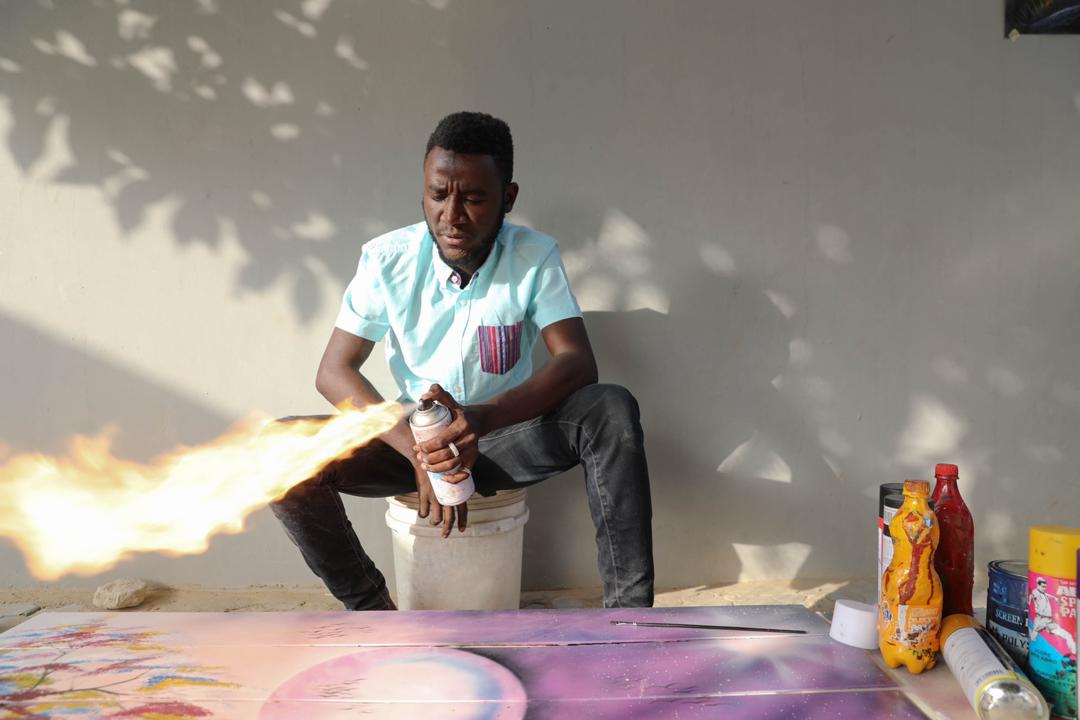In Borno, its neighbouring states and the three West African countries it borders, Boko Haram has wrecked havoc on the unsuspecting populace in a violent brand of radicalism. After years of attacks and counter attacks, the region has been held captive in a cruel unrelenting insurgency since 2009.
Boko Haram has killed thousands, displaced millions and caused famine-like conditions in the region. In light of this, whenever the North Eastern state of Borno pops up on the news or social media, the outcome is expected; the sad stories of a region with over a decade of conflict.
- Boko Haram now regrouping in Nasarawa State – Gov Sule
- Borno man who quit bank job to fight Boko Haram
The reality that exists for many is the trauma of the unending crisis and the emotional toll it has taken on the millions living in Borno, Adamawa and Yobe, as well as the displaced across Nigeria and its borders. As governments and organizations grapple with the aftermath of such devastation, the efforts to rebuild, feed, nurse and heal communities continue.
Individuals are also finding ways to address their trauma in different ways. The younger population who lives and studies in the midst of the turmoil, has seen a rollercoaster of unpredictable events. Most are struggling to decipher different ways of finding closure. One of such is Ibrahim Ali, a 400-level student of the University of Maiduguri. Born and raised in Maiduguri, Ibrahim, who is originally from Hawul Local Government Area of Borno is using art to address the complex collective trauma in the state.

Introduced at a very young age, he was drawn to the arts for self-expression. “I see art as a medium for solving the issues, problems of the society and also expressing your innermost feelings, things you cannot explain in words, you can use art to convey your message to the people,” he says.
And on a foggy day in Polo, an area in Maiduguri, Ibrahim arrives with a backpack. It contains an iPad where his digital designs are drawn. “It was given to me by an organization that commissioned me for an art piece. I wanted equipment more than money,” he says.
On the sandy road to his residence, he quietly talks about his inspirations. A lanky, calm person, he is animated about art. As a young child, Ibrahim started art as a fun activity. As time went on, people began to pay him for his illustrations. Seeing the means to earn money, he began to actively pursue this new hobby. He would later proceed to a government college in Maiduguri and joined an art club where he won many competitions while representing the school.
“During my pre–NCE, there was a competition for the arts and I was selected to represent Borno State. I won the first position and beat all the 36 states. It was an honour because the North had never won the first position.”
Encouraged by the accolade, Ibrahim proceeded to start arts education. Starting as a Painting student at the Kashim Ibrahim College of Education in Maiduguri where he honed his skills, he further went on to the University of Maiduguri to join the Department of Industrial Design to study Ceramics. Despite such feats, Ibrahim talks about the challenges of being an artist in a community where there are minimal opportunities for the arts. Amid the general assumptions of the arts being a profession unworthy of study, he credits the story of a teacher who studied to become a doctor but later ventured into visual arts.
‘There’s this culture we have here in the North that the arts is not an important field of study. But I was inspired by a woman whose family forced to study medicine. When she graduated, she gave her father the certificate and she started arts from the scratch. She was our teacher in the art club. Looking at her cultural background, she is a Muslim and she was making Islamic paintings; paintings that speak her beliefs and cultures. It inspired me to explain to my family in helping address many problems.”
As Ibrahim became recognized for his work in school, his family, who initially had doubts, relented. Despite such rare support from home, Ibrahim like many other artists continues to battle an unfriendly terrain. Borno, like most Northern states in Nigeria, has a non-existent art scene.
“Borno State is a very hard ground for art because of the culture. Most people don’t value art. It is viewed as a way of wasting time. I, as an artist, face many challenges but one has to stand their ground. In all situations, you have to believe in what you are doing. You try as much as possible to adapt to the environment that you are in. As an artist, you are not a normal human being. You have the ability to observe things. You have to create things out of the unexpected.”
With a keen eye for illustration, animation and painting, Ibrahim addresses also, the many traumas that permeate the region. In a graphic and colourful illustrations, he details issues such as gender-based violence, mass killings and the array of societal issues within the state. On the contrary, in spite of the difficulties, he is finding inspiration in abstract artists such as Salvador Dali and Pablo Picasso who he credits for his landscape paintings. “I decided to create pieces that will reflect the culture aesthetically. Beautiful art works that talk about the environment, the camels.”
As Ibrahim awaits a pending degree in Ceramics, he hopes to be able to afford a studio to continue his creative endeavours and hopes the future includes financial support for arts education. “We need art therapy. Art can help communities. We hope the government can encourage the arts and artists. Art can be a means of survival,” he adds.

 Join Daily Trust WhatsApp Community For Quick Access To News and Happenings Around You.
Join Daily Trust WhatsApp Community For Quick Access To News and Happenings Around You.


